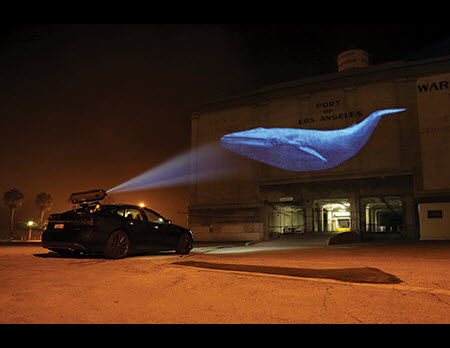TCA Notes: Shushing Trash Talk, Saving Species and Loving Netflix
The smarter way to stay on top of the multichannel video marketplace. Sign up below.
You are now subscribed
Your newsletter sign-up was successful

BEVERLY HILLS, Calif. — The Television Critics Association tour is known for its unusual and often memorable moments as network executives and talent face the firing line of questions from often-cranky critics. While the cable portion of the TCA was relatively tame with regards to a war of words between critics and on-stage personnel, a few notable exchanges occured over the four-day period.
• Starz CEO Chris Albrecht during his July 31 session took writers to task for perpetuating a perceived war of words between his network and HBO regarding their respective sports-related series, Survivor’s Remorse and Ballers. The day before, HBO president of programming Michael Lombardo had said he wasn’t familiar with Survivor’s Remorse when a writer asked him about a Starz press release that claimed TV critics were more enamored with the basketball-themed series than HBO’s football-focused comedy Ballers, starring Dwayne “The Rock” Johnson.
After being asked if he had heard of Ballers, Albrecht quickly shot down any beef between the two networks and chided the writer who initially framed the question to HBO. While admitting that “one of our people was out there pitching shows maybe a little bit too ardently” he warned writers to “behave themselves” when asking questions to the stars of Survivor’s Remorse when then came to the stage later that morning, a request that writers honored.
• During network sessions, series producers, directors and stars often look to the press to help promote their projects. But during Discovery Channel’s session on Racing Extinction, a critic asked the documentary’s showrunners what journalists could do to further get out the show’s message that without a serious focus on conservation, the world faces the potential global extinction of numerous species of animals over the next few decades.
Director Louie Psihoyos (The Cove) wasted no time in urging writers to “join the team” by signing up at racingextinction.com for alerts regarding the film, which will air in December.
“Everybody in this room can reach tens of millions of people. That’s huge. That’s a big advantage,” Psihoyos said. “You can magnify [the message] by getting journalists to write about it, getting it on Discovery. It’s all about scaling up.”
• Most cable and broadcast network series showrunners who address the TCA are excited about their projects and openly thank the networks for supporting them. But some critics were taken aback about the almost giddy enthusiasm several producers and showrunners had about working for over-the-top service Netflix, saying that its liberating to have creative freedom and to not to have to worry about ratings or advertiser and network concerns about content.
The smarter way to stay on top of the multichannel video marketplace. Sign up below.
Reacting to a question about whether it would be hard to go back to working with a network after her Netflix experience, Grace & Frankie showrunner Marta Kauffman said it would be “difficult” working under the more restrictive parameters of traditional television — parameters that the co-creator of NBC’s 1990s mega-hit Friends is familiar with.
“There is this thing about not having to structure a half an hour in six parts … you can’t tell a story in 21 minutes,” Kauffman said. “So I think going back to that kind of difficult, shortened storytelling would be impossible now that I’ve gotten the opportunity to have almost 10 minutes more and let the story tell us how long it should be.”
— R. Thomas Umstead
TCM: Passionate Film-Noir Fans Won’t Cut Class
Zombie shows draw fans in bunches, but film-noir aficionados have more stamina.
That’s one conclusion The Wire drew after hearing the results from a Turner Classic Movies stunt this summer that invited viewers to take an eight-week online course pegged to the channel’s “Summer of Darkness” programming event.
It was the first online course tie-in TCM had tried, general manager Jennifer Dorian explained, and it was a natural one because it fit with an existing Ball State University free course called “Into the Darkness: Investigating Film Noir.” Enrollees on a weekly basis would watch 45-minute videos and educational lectures, read long articles and take quizzes in order to ace the course, administered by Canvas Network. That’s a fair amount of work to obtain a certificate.
The norm for completing what are called massive online open courses is a rate of around 4% or 5%, Dorian said. The “Summer of Darkness” completion rate stands at 14.4% with results still being tallied.
As for zombies: The biggest- ever MOOC was tied in with The Walking Dead, and drew 65,000 enrollees — but only 3% completed it, according to statistics provided by TCM.
Dorian, over iced teas in New York City last week, said she wasn’t very surprised that a relatively high percentage completed the June and July program. “Our fans go deep; they’re committed to their passion for classic cinema,” she said, adding, “I liked the 20,000 people — that impressed me.” Dorian said the TCM programming formula — uncut, commercial-free movies, primarily from the 1900s to 1979, with some “peppering” of more recent films — still worked and won’t be tinkered with or massively modernized. She does want to do more interactive projects like this online course and create “on-ramps” to draw in younger viewers and more casual movie fans.
The “Summer of Darkness” stunt also struck a social-media chord as TCM sent fans a daily dose of two-minute film noir clips and sought their responses on Twitter (#noirsummer). The clips drew TCM’s highest-ever activity Twitter rate, Dorian said, even surpassing the awards-season staple “31 Days of Oscar.”
— Kent Gibbons
